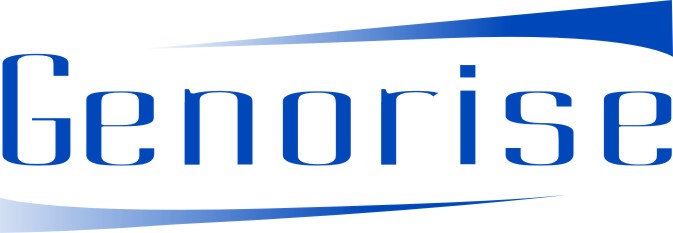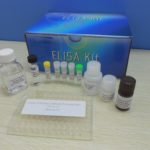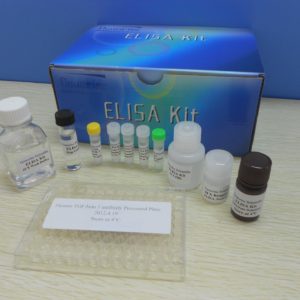Recombinant Canine IL-8 Protein
$99.00 – $456.00
The recombinant canine IL-8 protein is derived from in vitro expression of canine IL-8 gene in E. coli and purified using his-tag affinity column and can be used in multiple applications such as cell culture, ELISA and western blot.
Alternative names for IL-8: Interleukin 8, CXCL8
This product is for Laboratory Research Use Only not for diagnostic and therapeutic purposes or any other purposes.
- Description
- Product Citations
- Reviews (0)
Description
Genorise Recombinant Canine IL-8 Protein Summary
Alternative names for IL-8: Interleukin 8, CXCL8
Alternative name for canine: Dog
Product Specifications
| Purity | > 96%, by SDSPAGE under reducing conditions and visualized by silver stain. |
| Endotoxin Level | < 0.1 EU per 1 μg of the protein by the LAL method. |
| Activity | Measured by its ability to induce myeloperoxidase release from cytochalasin B-treated human neutrophils. JM Schroder et al (1987) J Immunol 139:3474.
The ED50 for this effect is 0.2-0.4 µg/ml. |
| Source | E. coli derived canine IL-8. |
| Accession # | P41324 |
| N-Terminal Sequence Analysis | Ser |
| Amino Acid Sequence | Ser29-Pro101 |
| Predicted Molecular Mass | 8 kDa |
| SDS-PAGE | 8 kDa, reducing conditions |
Background:
IL-8 was renamed CXCL8 by the Chemokine Nomenclature Subcommittee of the International Union of Immunological Societies (1), although its approved HUGO gene symbol remains IL8. CXCL8 was also referred to as neutrophil chemotactic factor (NCF), neutrophil activating protein (NAP), monocyte-derived neutrophil chemotactic factor (MDNCF), Tlymphocyte chemotactic factor (TCF), granulocyte chemotactic protein (GCP) and leukocyte adhesion inhibitor (LAI). Many cell types, including monocyte/macrophages, T cells, neutrophils, fibroblasts, endothelial cells, keratinocytes, hepatocytes, chondrocytes, and various tumor cell lines, can produce CXCL8 in response to a wide variety of proinflammatory stimuli such as exposure to IL1, TNF, LPS, and viruses. CXCL8 is a potent chemoattractant for neutrophils. In addition, CXCL8 also has a wide range of other proinflammatory effects. CXCL 8 is also a potent angiogenic factor. CXCL8 causes degranulation of neutrophil specific granules and azurophilic granules. CXCL8 induces expression of the cell adhesion molecules CD11/CD18 and enhances the adherence of neutrophils to endothelial cells and subendothelial matrix proteins. Besides neutrophils, CXCL8 is also chemotactic for basophils, T cells and eosinophils. CXCL8 has been reported to be a comitogen for keratinocytes and was also shown to be an autocrine growth factor for melanoma cells. It is a key parameter in localized inflammation (2). It has been cited as a proinflammatory mediator in gingivitis and psoriasis (3).
References
- Bacon K, et al (October 2002). J. Interferon Cytokine Res. 22 (10): 1067–8.
- Vlahopoulos S, et al. (September 1999). Blood 94 (6): 1878–89.
- Utgaard JO, et al (November 1998). Exp. Med. 188 (9): 1751–6.
Product Citations
Be the first to review “Recombinant Canine IL-8 Protein”
You must be logged in to post a review.


























Reviews
There are no reviews yet.